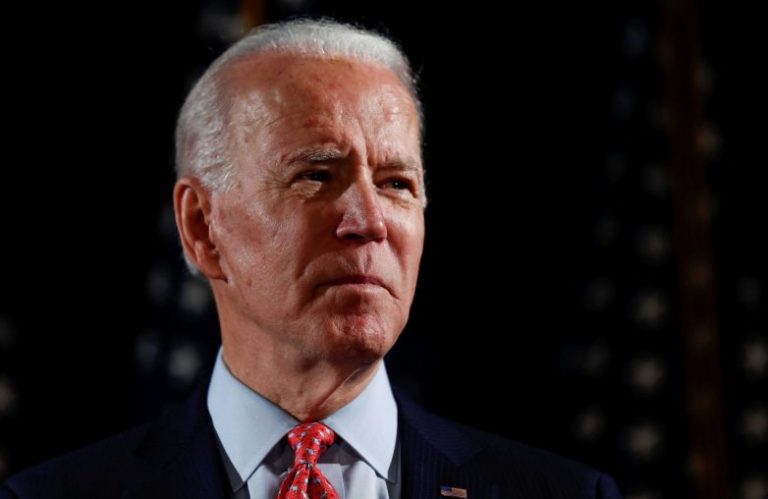WASHINGTON, US President Joe Biden has said there is no change in his country’s plan to withdraw its troops from Afghanistan, even as Taliban fighters step up attacks and make territorial gains, arguing that the Afghan army must fight for itself while Washington provides military and financial support.
“We lost thousands — death and injury, thousands of American personnel,” Biden said Tuesday at the White House. “They’ve got to fight for themselves, fight for their nation.”
The Taliban have advanced quickly across Afghanistan as the U.S. has withdrawn troops as part of an agreement signed by former President Donald Trump. The group has taken eight provincial capitals and targeted senior government officials.
Nonetheless, Biden said he doesn’t regret his decision to honour the commitment Trump made. He said the U.S. would continue to provide close air support, pay military salaries and supply Afghan forces with food and equipment.
Instead, with the U.S. withdrawal scheduled to finish in just three weeks, the administration is stepping up diplomatic efforts to end the Taliban offensive front and center, according to media reports.
U.S. envoy Zalmay Khalilzad is in Doha, Qatar, where the Taliban leadership is based and where peace negotiations between them and the Afghan government of President Ashraf Ghani began last September.
Those negotiations have yielded nothing but an agenda and repeated commitments to keep talking. Khalilzad himself – who negotiated former President Donald Trump’s withdrawal deal with the Taliban and was retained by Biden – conceded last week that the two sides remain “far apart.”
But he hopes to bring the pressure from the international community on the militant’s leadership, meeting counterparts from Pakistan, China, the United Nations, and more on Wednesday. The State Department said the group will work “to help formulate a joint international response to the rapidly deteriorating situation in Afghanistan,” including by reaching an agreement on demanding an urgent reduction in violence and opposing any government “imposed by force.”
In New York, a United Nations spokesman said, “We continue to be in touch with all the parties, whether in Afghanistan or the regional parties, in an effort to find a political solution.”
But Spokesman Stephane Dujarric said the facts on the ground “as we report them, as you see them in the media, are extremely worrying, extremely concerning.
“We see, yet again, the most vulnerable civilians finding themselves in the cross-hair of fighting, especially difficult fighting in urban areas. All this should be a reminder for the parties to actually focus on a political process.”
Khalilzad, the UN envoy, said last week that the Taliban want to take the “lion’s share of power” for themselves in any future Afghan government, although he and other State Department officials have also argued there is still hope for diplomacy, especially if the international community stands united against the Taliban offensive.
Have negotiations “achieved the results any of us want? Of course not, not yet. But we’re not ready to throw in the towel on diplomacy,” State Department spokesperson Ned Price said last Tuesday.
But critics say the talks are nothing more than political cover for the Taliban, as it consolidates gains on the battlefield with brutal efficiency – intent on taking power by force.
“Supporting negotiations is helpful, but only talking about negotiating while the other side is winning militarily and pushing for surrender is futile,” wrote five retired U.S.
ambassadors who served in Afghanistan – James Cunningham, Hugo Llorens, Ronald Neumann, Richard Olson, and Earl Anthony Wayne.
In an op-ed Friday, the group called for sustaining U.S. air support for Afghan forces “to prevent the defeat and collapse of the Afghan state until a stalemate can force serious negotiations and a sustainable settlement.”
The Biden administration, however, doesn’t seem to be interested in doing so.
“There are difficult choices every commander-in-chief needs to make on behalf of the American people. President Biden has been clear:
After 20 years at war, it’s time for American troops to come home. And as President Biden has said, the status quo was not an option,” ABC News said, citing a senior administration official.
During the last two decades of war, the Taliban made incremental gains on the battlefield, particularly in more rural districts. But before Biden’s withdrawal announcement, fighting was largely stalemated, and the militant group rarely gained control of capital cities in Afghanistan’s 34 provinces or held them for long, according to Michael Kugelman, deputy director of the Wilson Center’s Asia Programme.
The group had been preparing for this moment, however, developing footholds outside cities, amassing heavy weaponry and an illicit fortune, and capitalizing on weaknesses in Afghan security forces, Kugelman tweeted: “What’s happening now has been alarmingly speedy, but not sudden.”
That speed may have taken some U.S. officials by surprise, and it’s pushing President Ashraf Ghani and his government to boosting support for local militias and warlords to help fight back. Some analysts fear that raises the risk of all-out civil war, with competing factions, backed by foreign powers, fighting for control.
Follow the PNI Facebook page for the latest news and updates.









